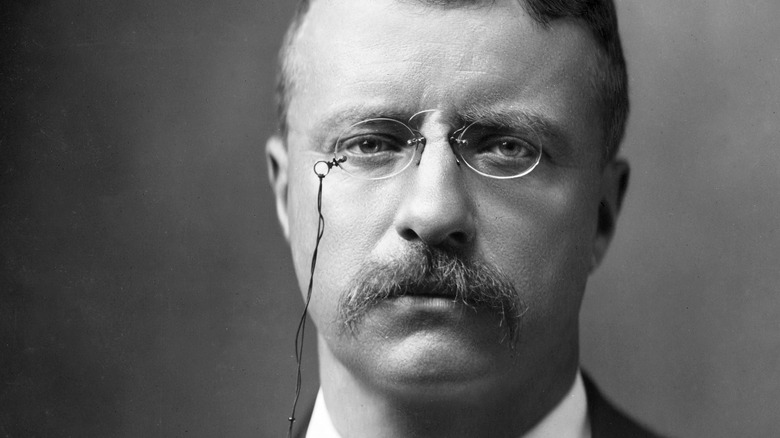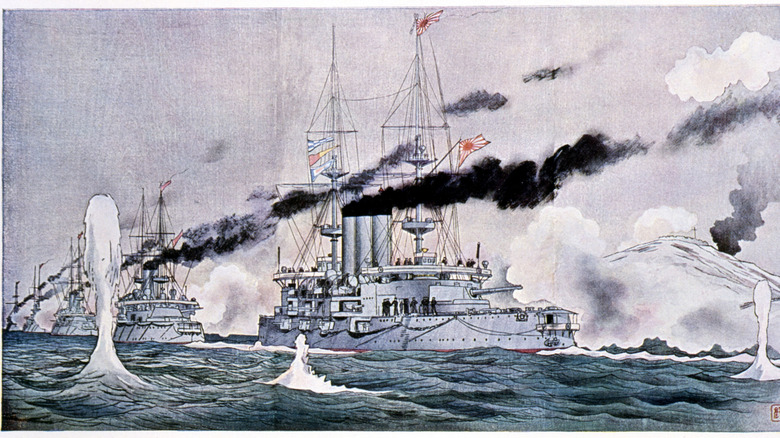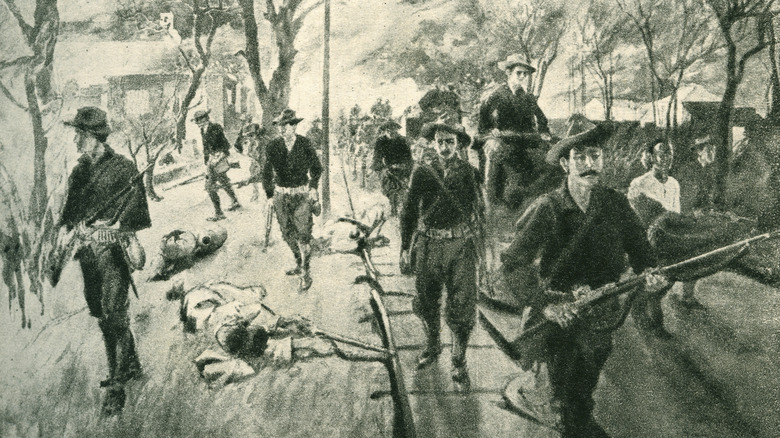Why Teddy Roosevelt's Nobel Prize Victory Was Met With Protest
The Boston Evening Transcript of Dec. 10, 1906, in announcing that the Norwegian Parliament had conferred the Nobel Peace Prize on President Theodore "Teddy" Roosevelt, began by stating: "Nobody will question the fitness of the award this year of the Nobel Prize for the imminent services in the cause of peace." However, for some, this statement was way off the mark. From the outset of the announcement, many people, including members of the Norwegian Parliament and the press, felt Roosevelt's record as U.S. president was anything but peaceful.
The New York Times (via "The Nobel Peace Prize and the Laureates") would later comment on Roosevelt's selection with the acerbic comment that "a broad smile illuminated the face of the globe when the prize was awarded ... to the most warlike citizen of these United States." A German newspaper, the Tageblatt, accused the Norwegian government of trying to cozy up to the Americans and believed that the prize's creator, Alfred Nobel, would spin in his grave at Roosevelt's selection, per The New York Times. But Roosevelt worked hard to end a bloody war between Russia and Japan that threatened to destabilize Asia.
Roosevelt helped bring an end to a brutal war
The Russo-Japanese War began on the night of Feb. 8 and 9, 1904, when the Japanese fleet launched a surprise attack on Port Arthur, a Russian naval outpost in Manchuria, per Britannica. Beginning in the late 19th century, Japan quickly went from an isolationist and agrarian society to a modern one with imperialist designs on Korea and China. Russia had similar ideas. The war raged for more than a year with mounting military and civilian casualties (more than 150,000 soldiers combined and at least 20,000 Chinese civilians), per History.
In the spring of 1905, the Japanese secretly approached Roosevelt, then in his first elected term as president, to help broker a peace deal. Still, Russia's Czar Nicholas II stubbornly refused to come to the table even though he was losing, according to History is Now Magazine. Roosevelt sent George Meyer, his ambassador to Russia, to deliver a note to the czar that spelled things out. It read, in part, "the present contest is absolutely hopeless and to continue it can only result in the loss of all Russian possessions in East Asia," per "Ambassador for Peace: How Theodore Roosevelt Won the Nobel Peace Prize." It did the trick.
The spotty peace record of an imperialist president
During the summer of 1905, representatives from Japan and Russia met in Portsmouth, New Hampshire, with Teddy Roosevelt mediating. By September, a peace treaty was in place and the war was over, per the Theodore Roosevelt Center. The Nobel Committee gave him the Peace Prize for his efforts. Roosevelt was the first statesman and American to receive the award, then only in its fifth year. Still, many on the Norwegian left considered Roosevelt a "military-mad" imperialist, according to The Nobel Peace Prize.
Roosevelt was far from a pacifist and oversaw a brutal military campaign in the Philippines that included the killing of civilians and the torture of prisoners, and sent troops into both Cuba and Panama during his tenure, per the Nobel Peace Center. After receiving the award, Roosevelt intended to use the $40,000 (more than $1.3 million today) in prize money to set up a permanent "Industrial Peace Committee" within Congress to help facilitate relations between labor and capital. But Congress never acted on this, so he asked for the money back, which he then gave away during World War I for war relief efforts, per The Tacoma Daily Ledger and the Theodore Roosevelt Center.


